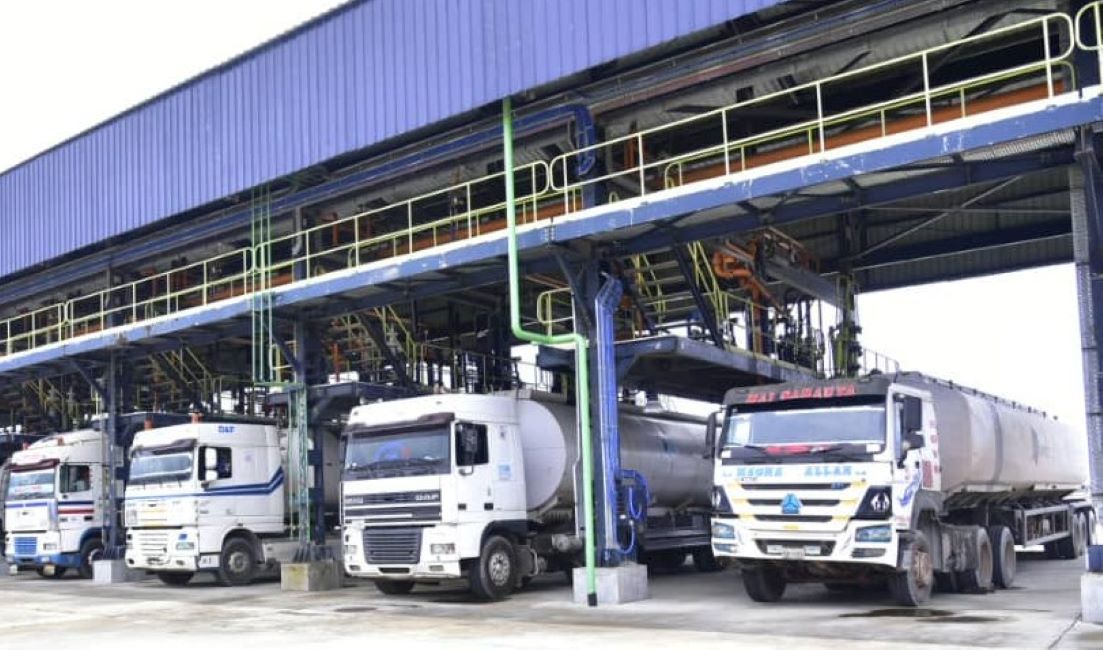Dangote And NNPC: The Impact On Petrol Prices In Nigeria

Table of Contents
Dangote Refinery's Potential Impact
Increased Domestic Refining Capacity
The projected impact of Dangote's massive refinery on Nigeria's petrol prices is substantial. This refinery, boasting a planned capacity of 650,000 barrels per day, represents a significant leap in domestic refining capacity.
- Expected refining capacity: 650,000 barrels per day, potentially increasing to over 1 million barrels in future expansion phases.
- Potential reduction in import costs: Reduced reliance on imported refined petroleum products will significantly lower the foreign exchange burden on Nigeria. This will positively impact the Naira and reduce pressure on the nation's foreign exchange reserves.
- Impact on foreign exchange reserves: A substantial increase in domestic supply will lessen the demand for forex used for petroleum imports, freeing up resources for other sectors of the economy.
This increased local refining capacity could lead to more stable and potentially lower petrol prices. However, challenges remain in achieving and maintaining full capacity. Efficient operation, feedstock supply, and skilled workforce management are crucial factors for success.
Competition and Market Dynamics
Dangote's entry into the refining market promises to significantly alter the competitive landscape. Currently, NNPC holds a dominant position.
- Potential price wars: Increased competition could lead to price wars, benefiting consumers through lower prices at the pump.
- Increased market efficiency: More players in the market generally lead to greater efficiency and improved service delivery.
- Consumer benefits: Consumers are likely to experience more competitive pricing and better quality of service.
The potential for price reductions due to increased competition is a major factor in assessing the overall impact on market stability. A healthy competitive market typically translates to more affordable petrol for Nigerian consumers.
NNPC's Role and Subsidy Regime
NNPC's Dominant Market Share
NNPC currently plays a dominant role in petrol importation and distribution in Nigeria. This dominance significantly influences petrol pricing.
- NNPC's import monopoly: For many years, NNPC has held a near-monopoly on petrol importation, limiting competition and influencing pricing.
- Government subsidies: The government's fuel subsidy regime has historically kept petrol prices artificially low, placing a significant burden on the national budget.
- Impact on budget: Fuel subsidies represent a considerable drain on government resources, which could be allocated to other crucial sectors.
The lack of transparency and accountability surrounding NNPC's operations has been a source of public concern and debate. Improved transparency is crucial for fostering a more competitive and efficient petroleum sector.
The Impact of Subsidy Removal
The removal of fuel subsidies is a highly debated policy option with significant implications.
- Potential price increases: Removing subsidies would likely lead to immediate and substantial price increases at the pump.
- Impact on inflation: Higher petrol prices could trigger a surge in inflation, affecting the cost of goods and services across the board.
- Social unrest: Price hikes could spark social unrest and protests, particularly among vulnerable populations.
- Government revenue implications: While removing subsidies would reduce the government's expenditure, the increased revenue might be offset by negative economic consequences.
The removal of subsidies could affect the competitiveness of Dangote's refined petroleum products. If prices remain high after subsidy removal, Dangote's competitively priced fuel could gain a significant market share.
Interplay Between Dangote and NNPC
Collaboration or Competition?
The future relationship between Dangote and NNPC remains unclear. Will it be characterized by collaboration or fierce competition?
- Potential partnerships: A collaborative approach could lead to synergies, leveraging the strengths of both entities to improve efficiency and stabilize prices.
- Market share distribution: The distribution of market share between Dangote and NNPC will significantly influence pricing strategies.
- Impact on pricing strategies: The competitive dynamic or a cooperative agreement will greatly impact the pricing strategies adopted by both companies.
A cooperative approach might result in more stable petrol prices, while competition could lead to fluctuations but ultimately benefit consumers through lower prices.
Government Regulation and Policy
Government regulation and policy significantly impact both Dangote and NNPC's operations.
- Regulatory framework: A well-defined and transparent regulatory framework is crucial for a fair and competitive market.
- Price controls: Government price controls could limit the benefits of competition and the impact of Dangote's refinery on prices.
- Impact on investment decisions: Government policies directly influence investment decisions by both companies, impacting the expansion of refining capacity and market entry of new players.
The Nigerian government’s role in regulating the petroleum sector is paramount in shaping the future of Dangote NNPC petrol prices Nigeria.
Conclusion
The impact of Dangote's refinery and NNPC's actions on petrol prices in Nigeria is complex and multifaceted. While Dangote's refinery offers the potential for increased domestic refining capacity, reduced import dependency, and potentially lower prices through competition, the success of this hinges on various factors, including NNPC's role, government policies, and the eventual removal of fuel subsidies. Understanding the interplay between these two giants and the government's regulatory approach is crucial for predicting future petrol price trends in Nigeria. Further research and analysis are needed to fully assess the long-term effects of Dangote and NNPC on Dangote NNPC petrol prices Nigeria. Stay informed about developments in the Nigerian petroleum sector to understand the implications for your wallet and the nation's economy.

Featured Posts
-
 Oilers Defeat Golden Knights 3 2 But Vegas Secures Playoff Berth
May 09, 2025
Oilers Defeat Golden Knights 3 2 But Vegas Secures Playoff Berth
May 09, 2025 -
 Social Media Censorship X Restricts Access To Jailed Turkish Mayors Account
May 09, 2025
Social Media Censorship X Restricts Access To Jailed Turkish Mayors Account
May 09, 2025 -
 High Potential On Abc A Risky Finale That Paid Off
May 09, 2025
High Potential On Abc A Risky Finale That Paid Off
May 09, 2025 -
 New Uk Visa Regulations Challenges For Nigerian And Pakistani Travellers
May 09, 2025
New Uk Visa Regulations Challenges For Nigerian And Pakistani Travellers
May 09, 2025 -
 2 360
May 09, 2025
2 360
May 09, 2025
